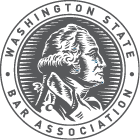National Study Underlines Urgency to Update State’s Defense Standards after 50 Years | Sept. 13, 2023
The Council on Public Defense Ready to Study and Recommend Application of new Model Standards
SEATTLE, Sept. 13, 2023 — With publication of a milestone national study 50 years in the making, the Council on Public Defense (CPD) is immediately beginning to examine how the new research about public-defense caseloads should be applied to Washington’s criminal courts.
“The accused are entitled to an effective advocate and that means a lawyer with time and resources to help,” said CPD Chair and Director of the Snohomish County Office of Public Defense Jason Schwarz. “This study underlines what public defenders are experiencing every day, which is a staggering increase in the number and complexity of cases, especially compared to 50 years ago when the national standards were first written. The CPD understands that overworked public defenders impact legal outcomes for the accused and the fairness of the criminal legal system. The CPD has already begun the work of adapting this study to Washington law.”
The CPD is a committee of the Washington State Bar Association, established in 2004 to address challenges that impact the state’s public defense system. The Washington Supreme Court tasks the state bar, through the CPD, to make recommendations regarding public defense caseloads and performance guidelines. The Court puts those recommendations into practice in courts via Superior Court Criminal Rule (CrR) 3.1 (Standards for Indigent Defense).
Since its inception, the CPD has regularly recommended updates to CrR 3.1, but the underlying standards are based on a 1973 study from the National Advisory Commission. The new study is the product of a partnership among the Rand Corporation, the National Center for State Courts, and the American Bar Association; it was released on Sept. 12 with comprehensive research that suggests public defenders are working far too many cases and their cases continue to grow more complex. These standards are not binding on any jurisdiction but act as a model.
Read the National Public Defense Workload Study
“The state bar is uniquely situated to convene stakeholders in the legal community to make sure our court rules support actual justice,” said Washington State Bar Association President Hunter Abell. “The Council on Public Defense exemplifies that work and oversees a process that is critically important: Fleshing out standards that will support the state’s constitutional obligation to provide ‘adequate’ legal counsel to anyone facing a criminal charge. What we are talking about here is how long a person might have to wait to get their day in court, and the quality of their defense. Those are among the foundations of criminal justice.”
The CPD expects to shepherd the new model standards to present a recommendation for rule changes to the Washington Supreme Court for consideration and adoption. The CPD aims to have draft recommendations by the end of the year.
“Public defenders have been eagerly waiting for these new standards—for more than 50 years, in fact,” Schwarz said. “And the CPD is eager to get to work to bring them to bear in Washington courts. While public defenders are some of the most committed, compassionate, and passionate lawyers, excessive workloads have resulted in burnout and the loss of great advocates and colleagues. Applying this study to the Washington legal landscape will assist us in assuring that assigned counsel have the time to advocate for accused.”
CPD has been raising the flag about excessive defender workloads for years, and the new study comes amid a flurry of state and national events highlighting the problem:
- CPD Statement: Public Defense Lawyers Should Seek Relief from Excessive Workloads
- Washington’s Counties File Suit Against the State: The Trial Court Defense System is Unconstitutional
- Lawyer Shortage Creates a Potential Constitutional Crisis (Yakima)
- Defendants Have a Right to Counsel, But Tri-Cities Struggles to Hire Enough Lawyers
- State Must Bolster Poorly Funded Public Defense System
- 106 Cases, Three Jobs, One Lawyer: The City’s Public Defenders are Struggling
- Public Defenders Work 3 Times Too Many Cases
- Washington County Ordered to Release Defendants from Jail If Public Defenders Aren’t Available
To learn more about the Council on Public Defense and stay updated about its work, visit www.wsba.org/connect-serve/committees-boards-other-groups/council-public-defense.
About the Washington State Bar Association
The WSBA operates under the delegated authority of the Washington Supreme Court and exercises a governmental function authorized by the Court to license and regulate the state’s nearly 40,000 legal professionals, including lawyers, limited practice officers, and limited license legal technicians. The WSBA both regulates legal professionals under the authority of the Court and serves its members as a professional association — all without public funding. The WSBA administers the Bar admission process, including the bar exam; provides record-keeping and licensing functions; administers the lawyer discipline system; and provides continuing legal education for legal professionals, in addition to numerous other educational and member-service activities. The Bar’s mission is to serve the public and its members, to ensure the integrity of the legal profession, and to champion justice.






